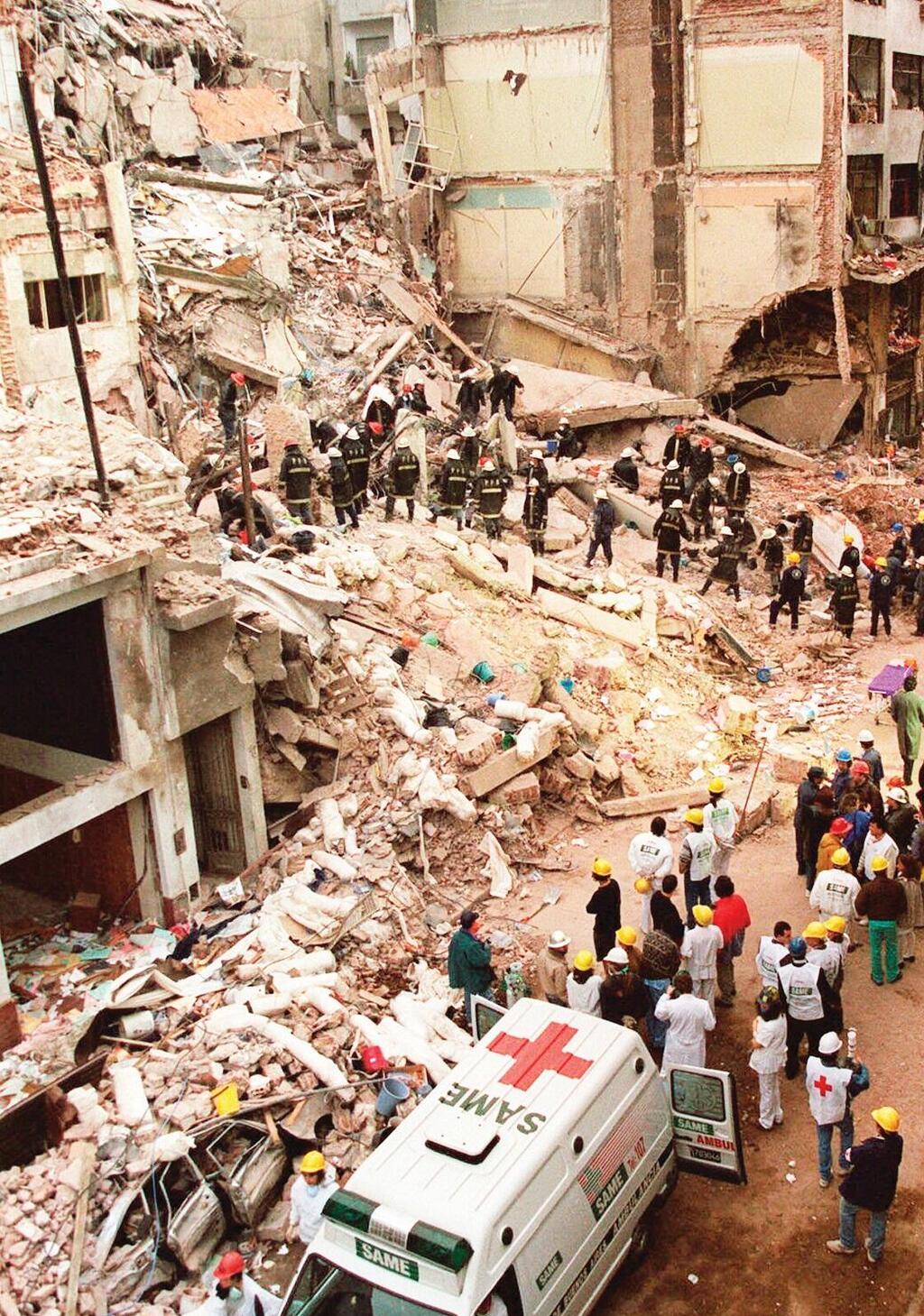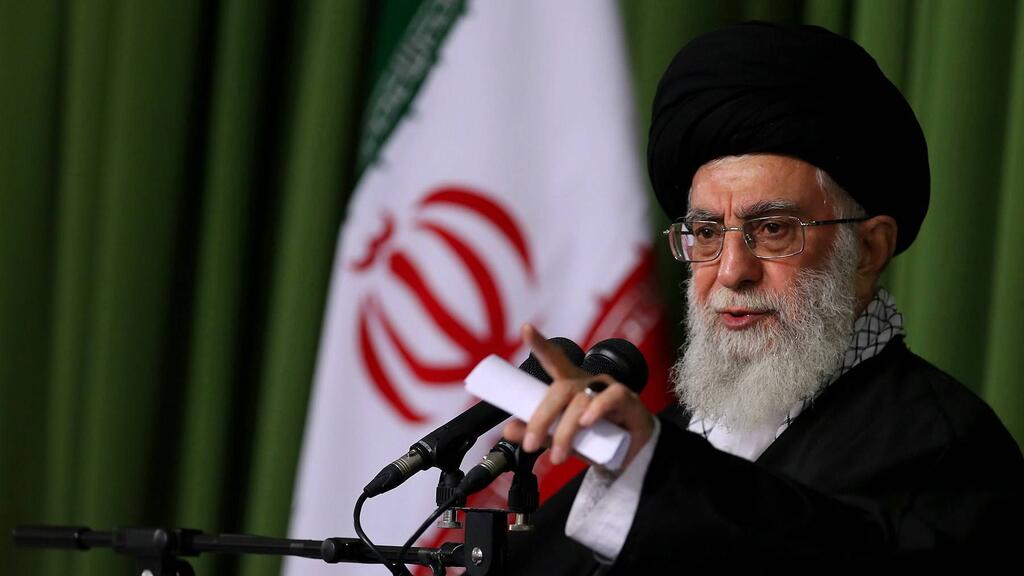Getting your Trinity Audio player ready...
Argentine federal prosecutor Sebastián Basso has formally requested an international arrest warrant for Iran’s Supreme Leader Ali Khamenei, accusing him of authorizing the 1994 bombing of the AMIA Jewish community center in Buenos Aires, which killed 85 people and injured hundreds more. The move follows the recent passage of a new Argentine law allowing trials in absentia for terrorism and crimes against humanity.
The July 18, 1994 bombing of the Argentine Israelite Mutual Association (AMIA) remains the deadliest terrorist attack in Argentina’s history. Argentine investigators have long blamed Iran for planning the attack and Hezbollah for carrying it out. The case has dragged on for nearly three decades without convictions, fueling widespread frustration among victims’ families.
“This is a before and after in the pursuit of justice,” said Luis Czyzewski, whose daughter Paola was killed in the bombing. Czyzewski explained that the request follows the recent legal reform: “For the first time, victims and accused are on equal legal footing.”
Even if the guilty are never extradited, exposing Iran before the world as a state sponsor of terrorism has immense symbolic and legal weight
Czyzewski and another AMIA family member submitted the initial request for trial. “Even if the guilty are never extradited, exposing Iran before the world as a state sponsor of terrorism has immense symbolic and legal weight.”
According to the 93-page court filing, the case hinges on longstanding evidence that Iran’s leadership authorized the attack during a meeting in Mashhad on August 14, 1993. Khamenei allegedly issued a religious-political directive, or “fatwa,” that set the plan in motion.
Basso, who has led the AMIA investigation since 2018 and after the murder of Alberto Nisman, the former prosecutor in 2015 , said: “A year before the bombing, the highest authorities of Iran made the decision in a meeting presided by Khamenei. That decision was not religious. It was political.”
He added that under Iranian law, the supreme leader wields ultimate authority over foreign operations. “He is the one who authorizes, oversees, and instructs. That is a constitutional fact.”
The request also includes 10 other fugitives, such as former Foreign Minister Ali Akbar Velayati, former Defense Minister Ahmad Vahidi, and the late Mohsen Rabbani, long accused of coordinating Iran’s intelligence activities in Buenos Aires.
The legal effort is made possible by Argentina’s new trial-in-absentia law, enacted in March 2025 after years of advocacy from victims’ families. “We promoted this law from the ground up,” Czyzewski said. “It took years of pushing, but now we have the legal tools to continue.”
We are not accusing a regime—we are prosecuting specific individuals who made concrete decisions that resulted in mass murder
Basso detailed Hezbollah’s deep-rooted logistical network in South America, particularly in the tri-border area between Argentina, Brazil, and Paraguay. “We have strong evidence that the logistics for the attack were prepared from this region, with the support of individuals embedded in the local Lebanese diaspora,” he said.
Basso emphasized the case targets individuals, not governments. “We are not accusing a regime—we are prosecuting specific individuals who made concrete decisions that resulted in mass murder.”
The arrest request also follows a diplomatic controversy involving Iran’s vice president for parliamentary affairs, Shahram Dabiri, who entered Argentina on a tourist visa. Though not linked to the AMIA case, Dabiri was swiftly dismissed by Iranian President Masoud Pezeshkian after his high-profile visit to Buenos Aires and Antarctica.
Luis Czyzewski called the incident “deeply troubling.”
“That someone with that rank could enter the country using false information on a visa granted by Argentina’s embassy is unacceptable,” he said. “It shows how much remains broken in our institutions.”
While the path to a conviction remains uncertain, the move to try Khamenei marks a shift in Argentina’s resolve to pursue justice for the 1994 attack. “What we hope is that the trial, even in absence, becomes an act of historical truth,” Czyzewski said. “And if Argentina determines its guilt, we may then move forward to take this to international courts.”
It is not just about punishing the guilty. It is about defending the dignity of our country and the victims who never stopped demanding the truth.
Asked about such a possibility, Basso said: “As a federal prosecutor, my jurisdiction is limited to Argentine law. Any escalation to international courts is a matter for the executive branch. But from a legal standpoint, the foundation is there.”
Get the Ynetnews app on your smartphone: Google Play: https://bit.ly/4eJ37pE | Apple App Store: https://bit.ly/3ZL7iNv
“It is not just about punishing the guilty,” Basso concluded. “It is about defending the dignity of our country and the victims who never stopped demanding the truth.”
If accepted by Judge Daniel Rafecas, the request would mark the first time a sitting head-of-state-level figure is formally tried in absentia in Argentina for international terrorism. For the victims’ families, it represents not just a legal milestone but a message to the world that even decades later, impunity can be challenged through democratic institutions.
The story is written by Gabriel Colodro and reprinted with permission from The Media Line.



